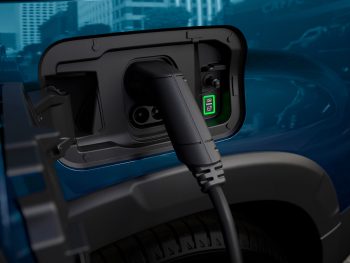Fleet registrations constrained by chip shortage but battery EV uptake doubles
Fleet registrations fell by a quarter (24.7%) in November, as the semiconductor shortage continued to bite, but plug-in vehicle uptake remained on a high.

Plug-in cars represented 28.1% of the new car market in November, with 21,726 battery electric vehicle registrations and 10,796 plug-in hybrids
Just 51,005 new fleet cars were registered last month, down by over 16,000 units compared to November last month – when the country was in lockdown. However, it was a smaller decline than the 40.4% fall recorded last month.
In contrast, ‘Business’ registrations to companies with fewer than 25 vehicles were up 11.2% to 2,080 units while private registrations in November grew 41.7% year-on-year. However, the Society of Motor Manufacturers and Traders (SMMT) said the growth reflects the impact that the November 2020 lockdown had on consumer purchases, as well as the supply-constrained nature of the current market.
While the overall new car market was up 1.7% in November to 115,706 units, SMMT data reveals this is still 31.3% below the pre-pandemic five-year average.
Mike Hawes, SMMT chief executive, said: “What looks like a positive performance belies the underlying weakness of the market. Demand is there, with a slew of new, increasingly electrified, models launched but the global shortage of semiconductors continues to bedevil production and therefore new car registrations. The industry is working flat out to overcome these issues and fulfil orders, but disruption is likely to last into next year, compounding the need for customers to place orders early.”
David Borland, EY UK & Ireland automotive leader, said the figures showed how the “auto industry continues to reel under pressure from the unholy trinity of Covid 19, semi-conductor shortage and supply chain pressures” – including rising prices of components – and warned that although consumer demand exists, there simply isn’t enough new car stock to satisfy demand.
Uptake of plug-in vehicles continued to rise though. In fact, battery electric vehicles (BEVs) took 18.8% of the market last month, with 21,726 units registered – more than double compared with November 2020.
And the share held by plug-in hybrid vehicles (PHEVs) grew to 9.3% or 10,796 units.
Year-to-date, a total of 1.54 million new cars have been registered, of which 17.5% have been BEVs or PHEVs – equating to one in six. When combined with hybrid electric vehicles (9.0% share), this means more than a quarter (26.5%) of the new car market during 2021 has been electrified.
Mike Hawes of the SMMT said: “The continued acceleration of electrified vehicle registrations is good for the industry, the consumer and the environment but, with the pace of public charging infrastructure struggling to keep up, we need swift action and binding public charger targets so that everyone can be part of the electric vehicle revolution, irrespective of where they live.”
Jamie Hamilton, automotive director and head of electric vehicles at Deloitte, also called for action on charging.
“The availability of chargers remains one of the biggest barriers to consumers switching to a fully electric vehicle. A comprehensive, joined-up approach to investment in the EV charging landscape will be required to overcome this hurdle.
“This month we have also seen legal commitments to fitting a charge point to all new homes and buildings. Undoubtedly, this will encourage more businesses to commit switching their fleets to electric and will see many more homeowners with driveway access to charging. However, charging will still be a challenge for those without off-street parking. Creating an equitable approach to EV charging which does not exclude large pockets of the population will be key to meeting 2030 commitments.”
And Hitachi Capital Vehicle Solutions echoed the calls.
Managing director Jon Lawes said: “The rise in popularity of electric vehicles continues to be welcome news for the industry as drivers are increasingly convinced by the compelling benefits of EVs.
“However, with a deteriorating ratio of public charge points to cars, there are concerns momentum towards zero emission motoring will be hampered in 2022 by insufficient public charging provision which is failing to keep pace with new EV registrations.
“Despite recent welcome government pledges to invest in charging infrastructure, the current shortfall and significant geographical disparities threaten to dampen driver confidence.”












